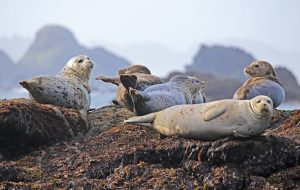The Benefits of Trade in Seal Products
AT ONE WITH NATURE
Visitors to the northern reaches of the world are struck by the natural beauty of the rugged landscape, the purity of the air, and the abundance of sea life in the oceans.
Canada, Greenland, Norway, Russia, Finland and Sweden lay claim to some of the most unspoilt lands and waters.
The north of North America, the Barents Sea, the White Sea… This is where man and nature live side by side, cohabiting in a harsh, remote, cold – and beautiful – environment.
There are cars and trucks and boats and some modern amenities but the underlying way of life is largely the same as it was for earlier generations.
There are no large factories, no skyscrapers and no interminable traffic jams. Strip malls and shopping centers do not litter the landscape. Hotels and office blocks do not conquer the skyline. Packs of taxis do not race noisily along the streets.
These small settlements are not known for attracting law firms or investment banks, car manufacturers or computer chip developers, bureaucratic centers or retail giants.
Here, local resources are utilized to support livelihoods. Fishermen and hunters tackle the seas and the ice to bring home their catch. What they don’t consume, they sell.
The natural beauty in remote northern regions continues to exist because people maintain traditional ways of life. Central to this is utilizing local natural resources, including seals.
View PDF in English.
View PDF in French.
View PDF in Spanish.
View PDF in Italian.
View PDF in Russian.


